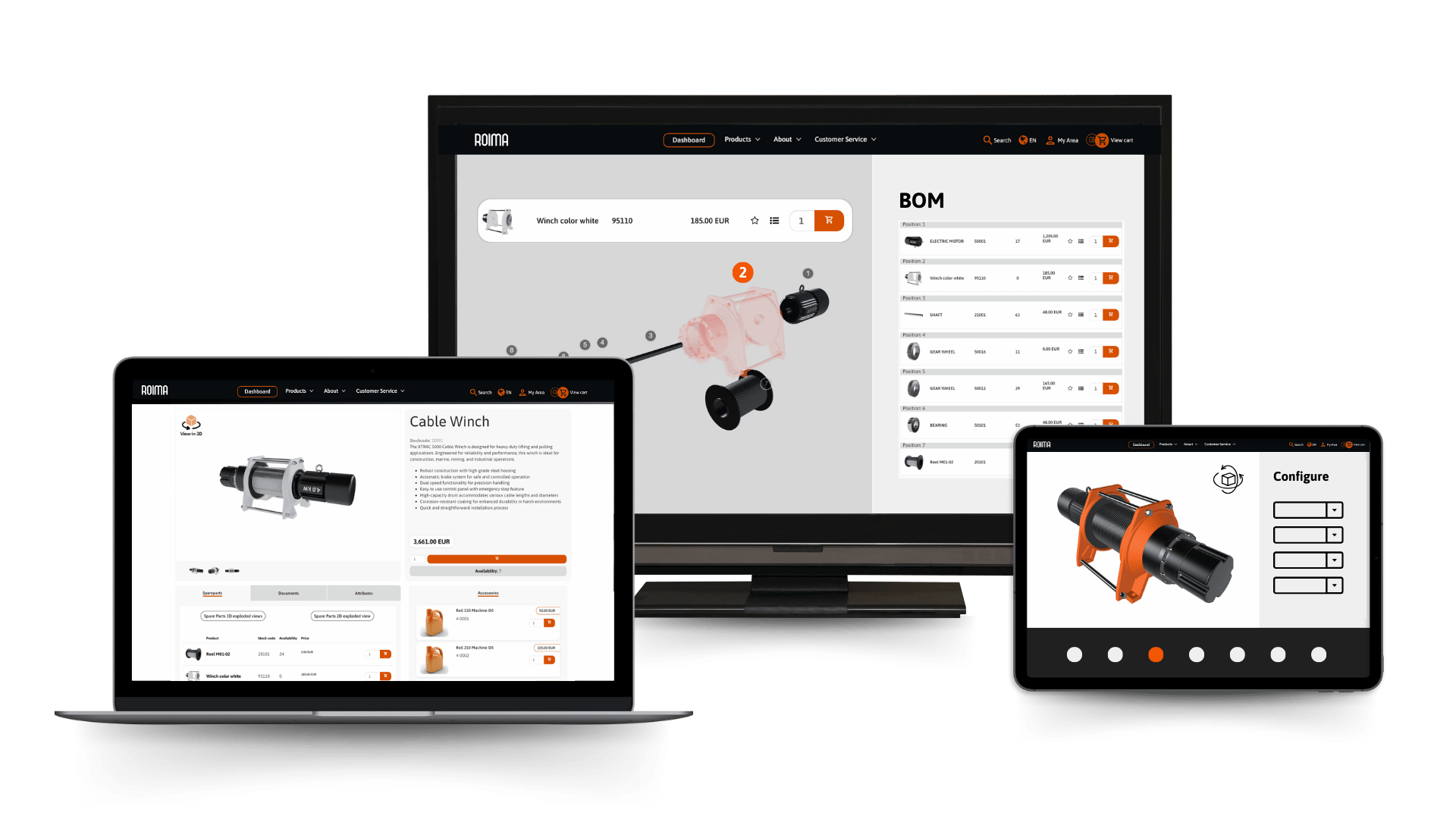Driving growth and efficiency: The power of B2B ecommerce for manufacturers
Manufacturing companies that adopt ecommerce and digital sales strategies gain a significant advantage over competitors who do not. This article covers why investing in ecommerce and B2B ecommerce software is crucial for your business and what you, as a manufacturer, can achieve from it.
Customer behavior has changed
The first wave of ecommerce occurred through B2C (Business-to-Consumer) use, revolutionizing the retail business by making shopping easier and more convenient for customers.
In the second wave, B2B (Business-to-Business) companies started to aim for the same goals as B2C companies by establishing an online presence.
Nowadays, B2B buyers have the same expectations from ecommerce sites as B2C buyers, such as:
- Online order entry
- Product configuration & quoting
- Access to detailed order history
- Real-Time status of orders
- Order shipment tracking
- Access to invoices and payment information
- Warranty claims features
- Product data & Price feeds
Some expectations even exceed what the B2C experience offers, including:
- Custom pricing and terms
- Customized product assortment
- Automated orders based on demand
- Reordering from previous ordes
- Handling complex products
- Easy location and ordering of spare parts
- Detailed product specifications and documentation
- Multi-user account management with role-specific permissions
- Volume discounts and bulk order handling
- Advanced logistics and supply chain management
- Comprehensive after-sales support and service agreements
B2B buyers are proactive, conducting extensive research before making a purchase. They previously relied on catalogs, card copy registers, and phone calls to find the best products at the best prices with the best delivery times. Now, with B2B ecommerce sites, consumers can use search engines and manufacturer websites to select and compare providers.
In summary: Ensure you can meet your customers’ expectations and provide what they are looking for.
This brings us to the first gain for manufacturing companies providing a B2B ecommerce site:
Access new markets with the right B2B ecommerce software
Implementing an ecommerce site opens up opportunities to reach new markets through digital marketing, which is more cost-effective than traditional marketing efforts. Unlike traditional marketing, digital marketing leverages online channels like social media, search engines, email, and content marketing to reach a broader audience at a lower cost.
Digital marketing speeds up the "Go-to-Market" timeframe by enabling access to new markets and territories with less effort. Techniques such as search engine optimization (SEO), pay-per-click (PPC) advertising, and social media marketing can significantly enhance your online exposure.
A well-optimized and searchable website can attract customers from thousands of miles away without direct salesperson involvement. This global reach increases brand awareness and sales possibilities through strategies like SEO, content marketing, social media engagement, and targeted email campaigns. Digital marketing provides detailed analytics, allowing you to track and optimize your campaigns effectively.
In summary, a robust B2B ecommerce platform combined with effective digital marketing enables manufacturers to efficiently access new markets, enhance brand presence, and drive business growth.
Increased efficiency with B2B ecommerce solutions
Implementing a B2B ecommerce platform significantly streamlines operations for manufacturing companies. By moving sales processes online, manufacturers can reduce manual order processing and administrative tasks, cutting costs and allowing staff to focus on strategic activities that drive business growth.
B2B ecommerce solutions increase efficiency for manufacturers in several ways:
- Less staff involvement: Automation reduces the need for human intervention, minimizing errors and freeing up resources.
- Automated sales processes: From order entry to invoicing, automation speeds up the sales cycle.
- Accessible ERP data: Real-time ERP data ensures up-to-date information for all team members, enhancing coordination and decision-making.
- Improved customer service: Detailed order histories, real-time status updates, and easy access to invoices and payment information improve support.
- Easy access to current orders: Real-time order tracking improves transparency and communication.
Additionally, a robust B2B ecommerce platform integrates advanced analytics and reporting tools, providing insights into customer behavior, sales trends, and operational bottlenecks.
In summary, adopting B2B ecommerce solutions boosts operational efficiency by automating processes, providing real-time data access, and improving customer service. This streamlining not only reduces costs but also positions your business for sustainable growth and increased competitiveness.
Addressing common objections to B2B ecommerce and their solutions
Objection 1: “Ecommerce is not for us”
As a manufacturer, you might believe that ecommerce doesn't fit your business model. Concerns about the complexity of your products, the necessity for personalized sales interactions, or the fear of disrupting traditional sales channels might make ecommerce seem unsuitable. Additionally, you may worry about the investment required to set up an online platform and the potential challenges in providing a seamless customer experience digitally.
Solution 1: B2B ecommerce is for you
B2B ecommerce platforms are tailored for manufacturers, handling complex products with tools like product configuration wizards, detailed filters, and real-time pricing and quoting (CPQ) systems. These platforms integrate with your existing systems (ERP, CRM, inventory), ensuring accurate stock levels, pricing, and order processing.
Ecommerce expands your market reach, attracting new customers globally while maintaining distributor relationships. It complements traditional sales by offering a convenient additional channel. Embrace B2B ecommerce to modernize your business, meet customer expectations, and drive growth in today’s digital economy.
Objection 2: “We don't want to compete with our distribution network”
Manufacturers relying on their distribution network might see a digital approach as a threat, fearing it could disrupt established relationships and create friction with their partners.
Solution 2: Collaboration is Key
Instead of viewing ecommerce as competition, use it to enhance collaboration. Invite distributors to join your platform and allow their customers to order directly from a distributor-branded site within your ecommerce site. This fosters closer collaboration, streamlines the ordering process, strengthens your distribution network, and expands your market reach.
Objection 3: “Our Products are Too Complex to Sell Online”
Many manufacturers hesitate to take their business online due to the complexity of their products, thinking it requires complex sales processes and specialist involvement. This concern is rooted in the belief that intricate product details and custom configurations can't be adequately conveyed through an online platform.
Solution 3: Configurations (CPQ), Selection Wizards and Filters
Today's technology provides convenient web-based solutions available 24/7 that can handle complex products. Customers now prefer online research, selection, and ordering, even for sophisticated items. Advanced B2B ecommerce platforms features advanced tools such as configuration wizards, detailed filters, CPQ (Configure, Price, Quote) solutions, and 3D visualizations to help customers understand and customize products. Utilizing CAD files for precise product representations and interactive 3D models for configurations allows customers to visualize and modify products in real-time. Additionally, these platforms can streamline the process of locating and ordering spare parts, ensuring customers get exactly what they need without specialist involvement. These features enable meaningful interaction with products, meeting customer needs efficiently and effectively.
In summary: Ecommerce is beneficial for all businesses, can enhance collaboration with distributors, and is capable of handling complex products with the right technology. Emphasizing collaboration over competition with your distribution network can transform B2B ecommerce into a mutually beneficial strategy.
Selecting the best B2B ecommerce platform for your business
In the early digital era, manufacturers venturing into online business often had to rely on B2C ecommerce platforms, which were not equipped to manage the complexities of B2B markets. These platforms lacked the necessary features to handle intricate product offerings and bulk orders, leading to costly custom integration projects and manual order entry processes. However, the emergence of B2B ecommerce software addressed these challenges, providing tailored solutions that streamlined operations and supported the unique needs of manufacturing companies, ultimately facilitating their online selling journey.
Key considerations for selecting a B2B ecommerce platform
For manufacturers, whether you are expanding into new markets or focusing on your current operations, a scalable solution that can grow with you and handle a multi-brand, multi-market structure is essential.
Here are key factors to consider:
- Product Data Management: How will you organize, maintain, and distribute your product data?
- User Personalization: Can the platform create personalized content and user experiences for different user types?
- Globalization and Localization: Does the platform support both globalization and localization simultaneously?
- ERP Integration: Can the platform connect different ERP systems to provide seamless data flow?
- Sales Channel Collaboration: How well does the platform facilitate collaboration with various sales channels?
- Sales Strategies Support: Does the platform support both direct and indirect sales strategies?
- Market Offerings: Can the platform handle different market offerings efficiently?
- Expansion Efficiency: How well does the platform streamline the roll-out process for new markets?
- Customer Tools: Does the platform move information and tools closer to your customers?
- Marketing Satisfaction: Can the platform satisfy the needs of your marketing department?
Integrating your ecommerce platform seamlessly with your ERP system is crucial for an efficient setup. A two-way interaction with your ERP system is vital for any professional B2B ecommerce solution. Without this capability, you risk double effort as revenue increases. Customers expect reliable real-time data, which ERP integration provides, enabling your website to offer 24/7 online customer service with accurate order status, invoices, pricing, and stock availability.
Choose a platform specifically designed for B2B ecommerce
B2B operates differently from B2C, and B2C platforms may not meet your long-term needs.
When selecting a B2B ecommerce platform, ensure it:
- Supports customer-specific prices and catalogs, and quantity break pricing
- Offers different presentations for various user types
- Integrates with your ERP system in real-time for up-to-date site data
- Uses ERP data and settings to reduce manual work
- Handles multiple languages, currencies, and markets
- Scales to support business expansion, such as new markets or companies
- Allows easy product enrichment with PIM beyond ERP information
- Serves as a tool for customers, sales, customer support, and product managers
- Provides robust security features to protect sensitive business data
- Includes advanced analytics and reporting tools for better decision-making
- Supports complex product configurations and customizations
- Facilitates efficient inventory management and order fulfillment
- Offers flexible payment options and terms tailored to B2B transactions
In conclusion
At tage B2B e-handel i brug er essentielt for fremstillingsvirksomheder, der ønsker at forblive konkurrencedygtige i dagens digitale marked. Ved at udnytte avancerede B2B e-handelsplatforme kan producenter møde de skiftende kunders forventninger, få adgang til nye markeder og væsentligt forbedre driftsmæssig effektivitet. Disse platforme tilbyder skræddersyede løsninger til at håndtere komplekse produkter, støtte samarbejde med distributionsnetværk og strømline salgsprocesser gennem automatisering og realtidsdataadgang. Investering i den rigtige B2B e-handelssoftware moderniserer ikke kun din virksomhed, men positionerer den også til bæredygtig vækst og øget markedsdækning. Omfavn B2B e-handel for at låse op for nye muligheder og drive din virksomhed fremad i den digitale økonomi.
Ser du efter en B2B e-handelsløsning? Tjek Parttrap ONE, den alt-i-en B2B e-handelsplatform, skræddersyet til fremstillings- og distributionsvirksomheder, der integrerer CMS, PIM, reservedele management og CPQ med førende ERP-systemer for at strømline driften og forbedre kundeoplevelser.
-
Parttrap® ONE
Parttrap® ONE
Additional text for product card: B2B e-handelsplatform for producenter og distributører. -
Parttrap® ONE webinar
Digitalizing the sales process and spare parts sales with Parttrap® ONE: Kemppi Oy Demo



















